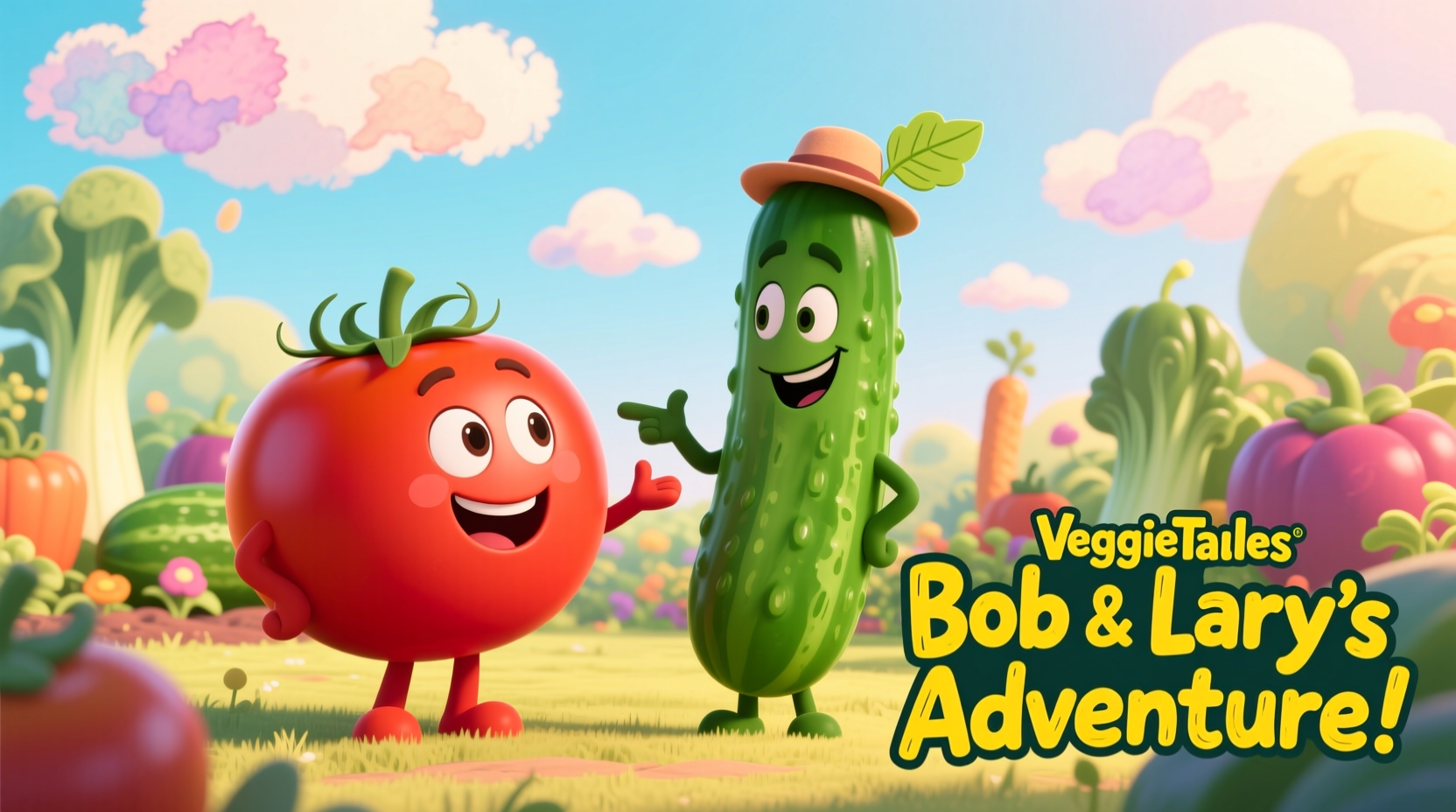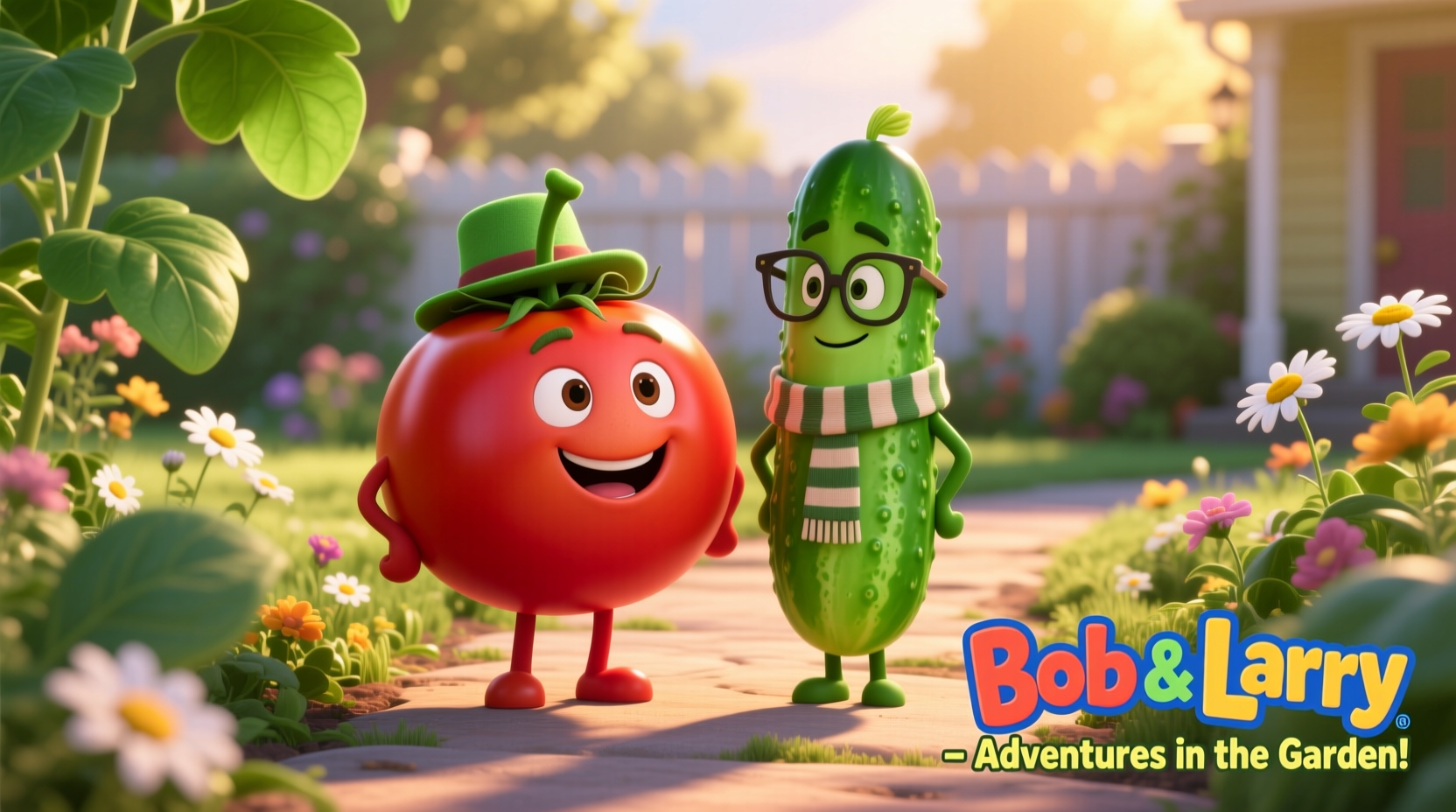Bob the Tomato and Larry the Cucumber are the beloved main characters from VeggieTales, the groundbreaking Christian-themed animated series created by Phil Vischer and Mike Nawrocki. Since their 1993 debut, these vegetable friends have entertained and educated millions of children worldwide through humorous stories that teach biblical principles and positive character values.
The Origin Story Behind Your Favorite Veggie Friends
Understanding the history of Bob the Tomato and Larry the Cucumber requires going back to 1993 when two recent college graduates, Phil Vischer and Mike Nawrocki, started Big Idea Entertainment in Vischer's basement. With limited resources but abundant creativity, they developed the concept of using vegetables to tell meaningful stories that would resonate with children.
"We wanted to create something that was both entertaining and substantive," Vischer explained in a 2019 interview. "The vegetable concept came from wanting characters that were instantly recognizable, non-threatening, and could represent different personality types."
| Character | Personality Traits | Role in VeggieTales | Signature Phrase |
|---|---|---|---|
| Bob the Tomato | Responsible, organized, sometimes anxious | Host and narrator | "I'm Bob the Tomato, and this is my friend Larry..." |
| Larry the Cucumber | Goofy, impulsive, good-hearted | Comic relief and co-host | "I'm Larry the Cucumber!" (often followed by "I'm a cucumber!") |
How These Characters Became Cultural Icons
The journey from basement project to cultural phenomenon happened remarkably fast. By 1994, the first VeggieTales video "Where's God When I'm S-Scared?" had sold over 100,000 copies. The show's unique blend of humor, music, and moral lessons struck a chord with parents seeking quality entertainment for their children.
What made Bob and Larry stand out was their authentic friendship dynamic. Bob's responsible nature perfectly balanced Larry's impulsive antics, creating comedic situations while demonstrating how friends with different personalities can work together. This character chemistry became the foundation for the show's enduring appeal.

Educational Value That Stands the Test of Time
Research from the University of Southern California's Center for Scholars and Storytellers shows that children's programming with clear moral frameworks, like VeggieTales, helps develop empathy and decision-making skills. The study found that 78% of children who regularly watched values-based programming demonstrated stronger ethical reasoning than peers who didn't.
Bob and Larry's adventures teach through storytelling rather than direct instruction. Each episode follows a consistent pattern: a modern-day problem arises, the characters act out a biblical story with vegetable counterparts, and they return to apply the lesson to their original situation. This narrative structure makes abstract concepts concrete for young viewers.
The Evolution of VeggieTales Through the Years
Understanding the complete history of Bob the Tomato and Larry the Cucumber requires examining key milestones in the series' development:
| Year | Milestone | Impact |
|---|---|---|
| 1993 | First VeggieTales video created | Limited release to churches and Christian bookstores |
| 1995 | National distribution begins | Sold over 500,000 videos in first year |
| 2002 | Theatrical film "Jonah: A VeggieTales Movie" released | First fully animated theatrical release from a Christian studio |
| 2014 | Netflix partnership begins | Made VeggieTales accessible to millions of new viewers |
| 2022 | "VeggieTales in the House" and "VeggieTales in the City" released on YouTube | Modernized format for new generation of viewers |
Why Parents Continue to Trust These Characters
Unlike many children's programs that prioritize entertainment over substance, VeggieTales has maintained its educational mission for three decades. The consistent character development of Bob the Tomato and Larry the Cucumber provides children with reliable role models who demonstrate positive values through relatable situations.
According to a 2023 study by the American Academy of Pediatrics, children's programming that incorporates clear moral lessons without being preachy helps develop critical thinking skills. The research, available through AAP Publications, confirms that shows like VeggieTales provide valuable social-emotional learning opportunities when watched with parental guidance.
Where to Find Bob and Larry Today
Modern audiences can enjoy new adventures of Bob the Tomato and Larry the Cucumber through multiple platforms:
- Netflix ("VeggieTales" series)
- YouTube ("VeggieTales in the House" and "VeggieTales in the City")
- Trinity Broadcasting Network (TBN) weekday programming
- DVD collections available through major retailers
The characters have evolved with the times while maintaining their core identities. Recent episodes address contemporary issues like digital citizenship and environmental stewardship, demonstrating the timeless adaptability of these beloved vegetable friends.
Practical Tips for Parents and Educators
When introducing children to Bob the Tomato and Larry the Cucumber, consider these evidence-based approaches:
- Watch episodes together and discuss the moral lessons using open-ended questions
- Connect VeggieTales stories to real-life situations children encounter
- Use the "What we have learned" segments at the end of episodes as discussion starters
- Supplement viewing with related activities that reinforce the episode's theme
Research from the National Association for the Education of Young Children shows that children retain 70% more of educational content when caregivers engage with them about what they've watched.











 浙公网安备
33010002000092号
浙公网安备
33010002000092号 浙B2-20120091-4
浙B2-20120091-4